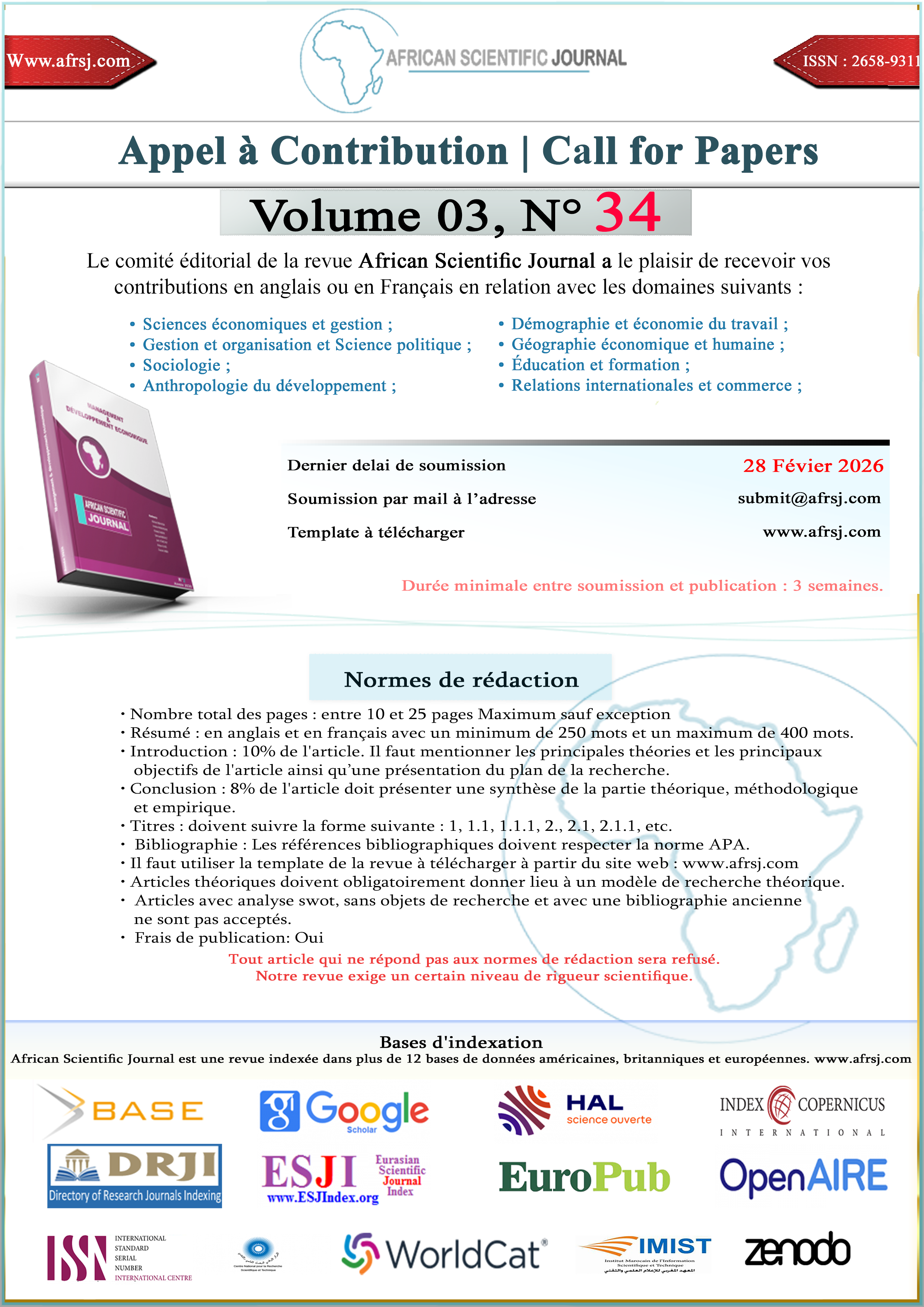The introduction of private accounting in the Moroccan public sector: a reflection of New Public Management
DOI :
https://doi.org/10.5281/zenodo.10112079Mots-clés :
NPM, Post-NPM, Accounting reforms, Private accounting, Public accountingRésumé
The complexity of managing government services is seen as one of the factors driving the modernization of the public sector. Indeed, this sector is faced with major challenges such as the accumulation of budget deficits and the satisfaction of citizens' needs, prompting it to go beyond the Weberian model and opt for original systems. It was against this backdrop that the New Public Management (NPM) approach (Hood, 1991) emerged. NPM recommends that public bodies follow the model of private enterprise, adopting its management methods and tools. In Morocco, the impact of this evolution materialized in the reform of its accounting system, which was transcribed in the organic law relating to the finance law (LOLF). The latter revolutionized the accounting landscape of organizations by introducing private accounting into the public sector. The aim of the paper is twofold: on the one hand, to study the evolution of public sector management from traditional management to one based on the principles of NPM, and on the other, to study the impact of NPM on the introduction of private accounting in the Moroccan public sector.
Téléchargements
Publiée
Comment citer
Numéro
Rubrique
Licence
(c) Tous droits réservés African Scientific Journal 2023

Ce travail est disponible sous licence Creative Commons Attribution - Pas d'Utilisation Commerciale - Pas de Modification 4.0 International.





















